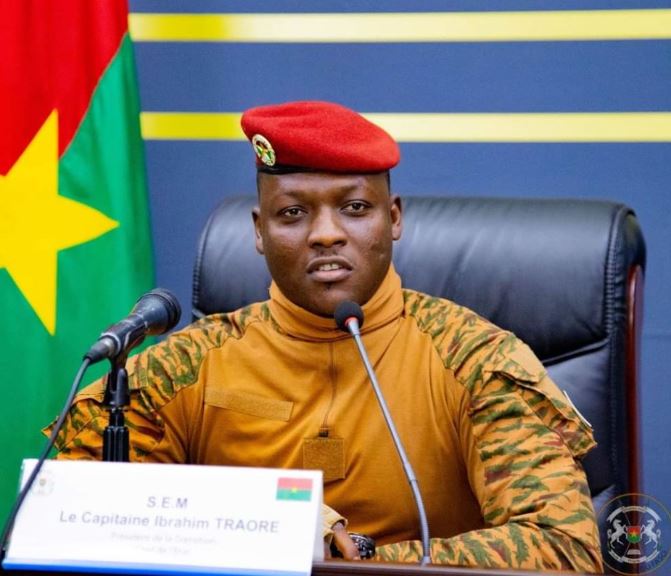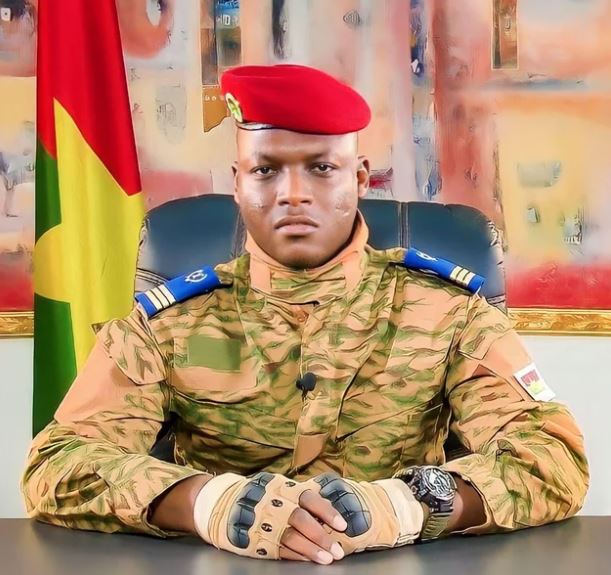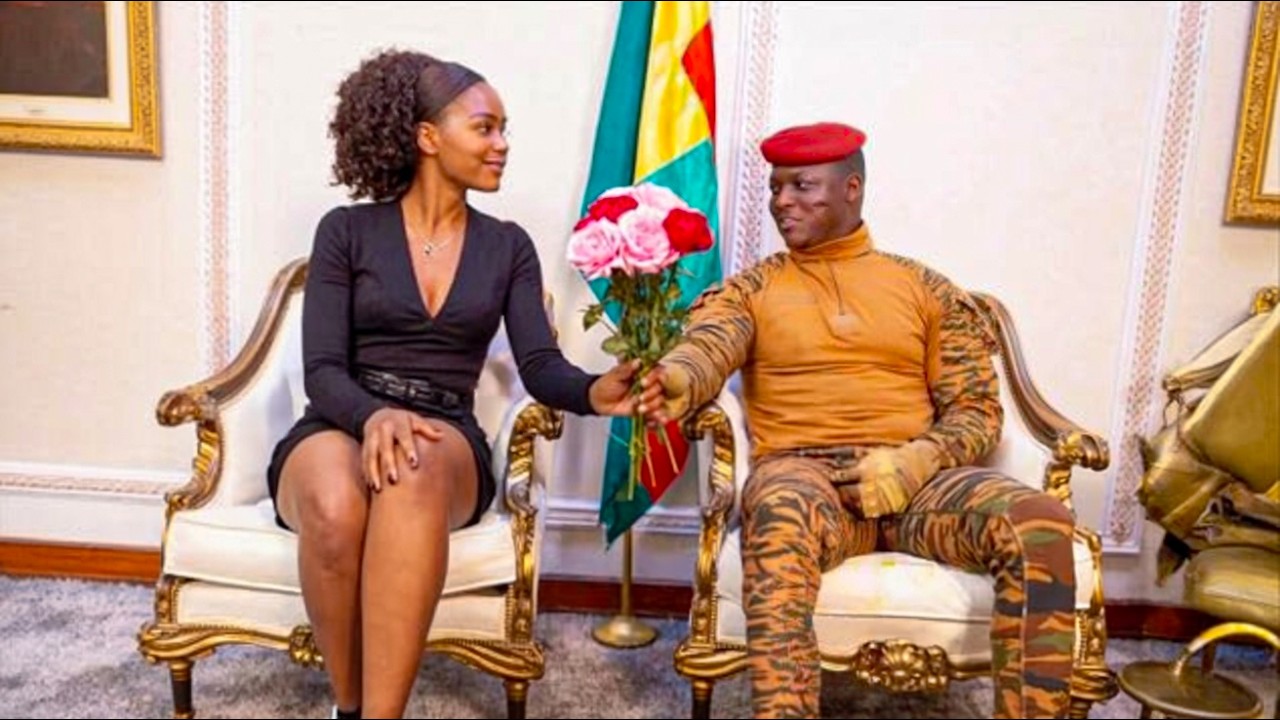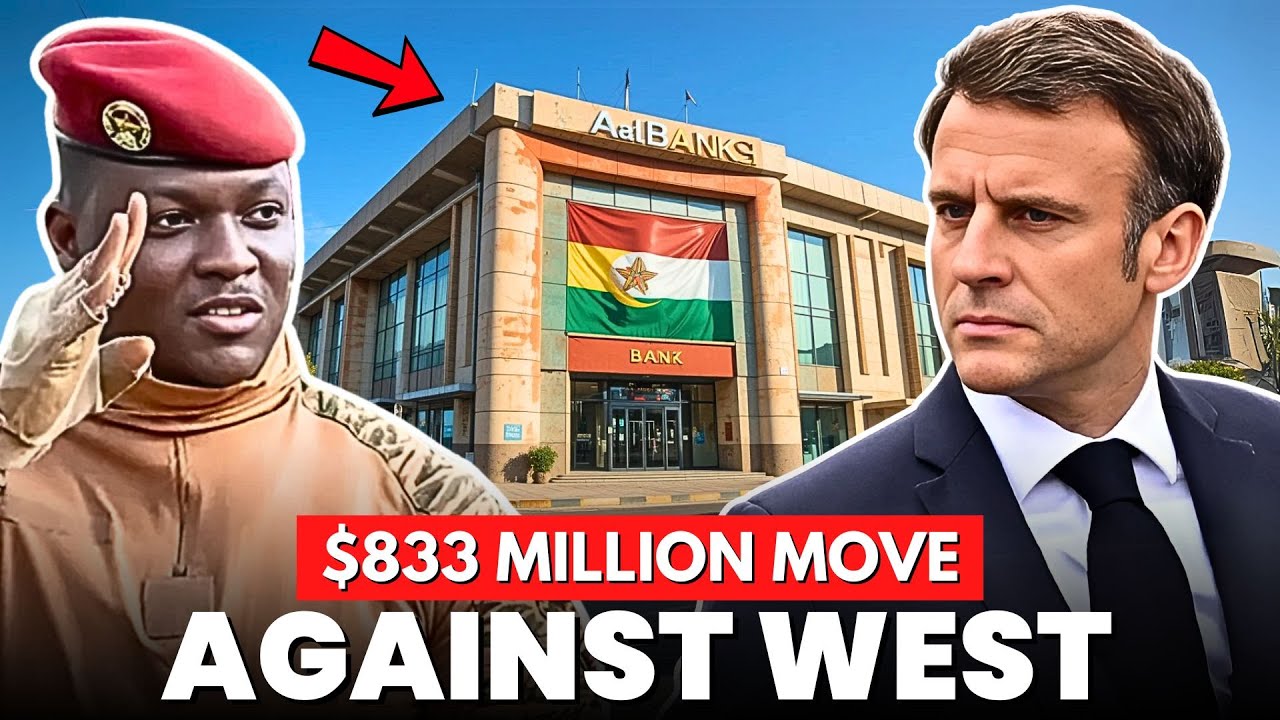**Headline: Burkina Faso’s Silent Revolution: How Ibrahim Traoré is Rebuilding a Nation**

In an unprecedented transformation, Burkina Faso is undergoing a silent revolution under the leadership of President Ibrahim Traoré, who has set the nation on a path of remarkable reconstruction in less than three years. With an ambitious vision and a series of groundbreaking projects, Traoré is not only redefining the socio-economic landscape of Burkina Faso but also sending shockwaves across the region and beyond.
Following his rise to power in late 2022, Traoré wasted no time in launching 25 transformative initiatives aimed at revitalizing a nation long plagued by instability and economic hardship. His recent actions are not merely political maneuvers; they are tangible steps toward reclaiming dignity and self-reliance for the Burkinabé people.

On October 2, 2024, the skies above Wagadugu were filled with renewed hope as Air Burkina took off with a symbolic inaugural flight, marking the airline’s comeback after years of silence. The $19 million investment in a new 98-seat jet, facilitated through discreet diplomatic channels with China, is more than a mere business venture; it represents a reconnection of Burkina Faso to the global community. For Traoré, reviving the airline is about more than prestige; it’s about restoring national pride.
But the revolution doesn’t stop there. A state-of-the-art cashew processing plant is now turning raw materials into symbols of economic sovereignty, expected to create over 20,000 direct jobs and empower farmers across the nation. Traoré’s vision extends to the financial sector, where the newly launched Postal Bank (BPPF) is breaking barriers for the underserved, offering microloans and financial services aimed at transforming lives one account at a time.

In a bold cultural reclamation effort, Traoré has also reinvigorated the textile industry by promoting Faso Danfani, a traditional handwoven fabric, and banning the import of secondhand clothes. This move is not just an economic strategy; it is a powerful declaration of cultural identity, allowing Burkinabé people to wear their pride on their sleeves.
The revitalization of the Bobo Dialaso International Airport, backed by an 80 billion CFA investment, is set to transform it into a regional hub, enhancing trade and tourism opportunities. The airport will not only serve passengers but also symbolize the strategic ambitions of a nation eager to redefine its place in the world.

Agriculture, once seen as a last resort, is becoming a beacon of empowerment. The government has launched a historic $200 million program to train thousands of young farmers in smart agricultural practices, providing them with the tools and resources to thrive. These initiatives are not just about survival; they are about inspiring a new generation to cultivate the future.
Moreover, Traoré’s ambitious plans to construct 50,000 kilometers of paved roads by 2030 signal a monumental shift in infrastructure development, aimed at connecting remote communities and restoring trust in governance. Each road built is more than just a pathway; it’s a lifeline for communities long isolated from essential services.
As Burkina Faso reclaims its autonomy, the formation of the Alliance of Sahal States (AES) in January 2024 marks a significant geopolitical shift. Departing from Western-backed regional blocks, this pact aims to foster economic cooperation and regional solidarity among Burkina Faso, Mali, and Niger, signaling a new era of self-determination and collaboration.
In just three years, Ibrahim Traoré has demonstrated that true independence is not merely declared; it is built—brick by brick, road by road, policy by policy. Burkina Faso is awakening, and as the world watches, it is clear that this young leader is not just changing a country; he is redefining what is possible in the heart of West Africa.




